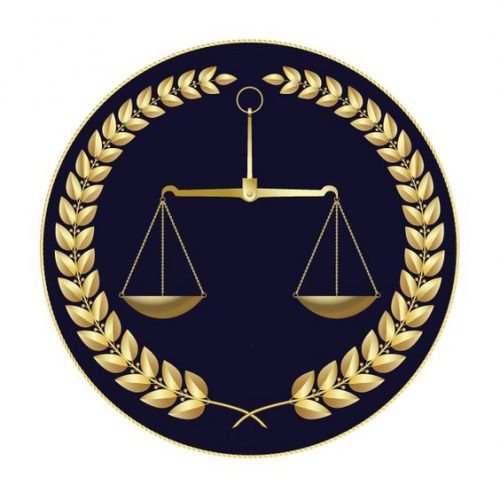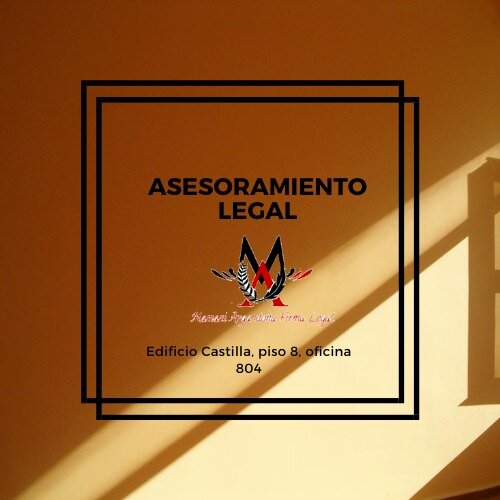Best Energy Regulatory Law Lawyers in Bolivia
Share your needs with us, get contacted by law firms.
Free. Takes 2 min.
Or refine your search by selecting a city:
List of the best lawyers in Bolivia
About Energy Regulatory Law in Bolivia
Energy Regulatory Law in Bolivia refers to the comprehensive legal framework that governs the production, distribution, commercialization, and consumption of energy resources within the country. This area of law focuses on electricity, gas, hydrocarbons, renewable energy, and their respective market regulations. The Bolivian government has significant involvement in the energy sector, emphasizing the principles of national sovereignty and public interest. Energy legislation addresses issues such as licensing, tariffs, competition, renewable energy incentives, and environmental protection.
Why You May Need a Lawyer
There are several situations where professional legal assistance becomes essential in the field of Energy Regulatory Law in Bolivia. Some common reasons include:
- Assisting with compliance for energy companies or projects, including licensing and permits
- Advising on regulatory changes and their impact on ongoing and future operations
- Representing parties in disputes with regulatory bodies or other stakeholders
- Providing legal support for mergers, acquisitions, or foreign investments related to the Bolivian energy sector
- Navigating environmental regulations and requirements for renewable and traditional energy projects
- Assisting with contract negotiations for energy supply, transmission, and distribution
- Guiding companies through tender processes and public bidding related to energy infrastructure
Local Laws Overview
Bolivia has a unique legal landscape in energy regulation, guided largely by the country’s Constitution and a series of sector-specific laws. The nationalization of hydrocarbons and electrical energy is a cornerstone of current policy, with the state holding control over natural resources. Key legislative instruments include:
- Political Constitution of the Plurinational State of Bolivia: Declares hydrocarbons, electricity, and other energy sources as strategic and under state control
- Hydrocarbons Law (Law 3058): Sets requirements for exploration, production, and commercialization of oil and gas
- Electricity Law (Law 1604): Regulates generation, transmission, distribution, and commercialization of electricity
- Environmental Law (Law 1333): Mandates environmental impact assessments for energy projects
- Renewable Energy Regulations: Encourage the adoption and investment in renewables, though direct incentives remain developing
- Regulatory Authorities: The national government, through ministries and independent regulators like the Autoridad de Fiscalización de Electricidad y Tecnología Nuclear (AETN) and the Agencia Nacional de Hidrocarburos (ANH), supervises compliance and operational standards
The legal framework places a strong emphasis on national benefit, environmental sustainability, and fair access, often requiring careful compliance with administrative and regulatory procedures.
Frequently Asked Questions
What is the primary regulatory body for energy in Bolivia?
The primary regulatory authorities are the Autoridad de Fiscalización de Electricidad y Tecnología Nuclear (AETN) for electricity and the Agencia Nacional de Hidrocarburos (ANH) for hydrocarbons.
Can private companies participate in the energy sector?
Yes, private companies can participate, but strategic sectors such as hydrocarbons and electricity remain under state control. Collaboration is possible through service contracts, public-private partnerships, or joint ventures where the state maintains oversight.
How are energy tariffs determined in Bolivia?
Tariffs are regulated by the state and set based on technical studies to ensure affordability for consumers while sustaining necessary investment in infrastructure.
Are there incentives for renewable energy projects?
The Bolivian government is progressively developing incentives for renewable energy, including preferential access to permits, reduced regulatory barriers, and inclusion in national energy planning.
What are the main compliance requirements for energy companies?
Compliance requirements include acquiring necessary licenses, adhering to environmental regulations, demonstrating technical and financial capacity, and regularly reporting operational data to authorities.
What happens if a company does not comply with energy regulations?
Non-compliance can lead to administrative sanctions, fines, suspension or cancellation of licenses, and even criminal proceedings in severe cases such as environmental harm or unauthorized exploitation of resources.
How does nationalization affect foreign investment?
Foreign investors must align with state policies and usually operate under government supervision or partnership. Existing laws protect lawful investments but prioritize national interests and public benefit.
Do energy projects require environmental assessments?
Yes, all significant energy projects must undergo environmental impact assessments, as mandated by Environmental Law 1333, to obtain necessary approvals before implementation.
Can disputes with regulators be appealed?
Yes, administrative decisions by regulatory authorities can be challenged through administrative recourse procedures and, ultimately, judicial review if necessary.
Are there specific rules for exporting Bolivian energy?
Energy exportation is strictly regulated and typically requires governmental authorization. These transactions must also comply with international agreements and national legislation.
Additional Resources
For those seeking further information or legal advice related to Energy Regulatory Law in Bolivia, the following resources and organizations can be helpful:
- Ministerio de Hidrocarburos y Energías (Ministry of Hydrocarbons and Energy)
- Autoridad de Fiscalización de Electricidad y Tecnología Nuclear (AETN)
- Agencia Nacional de Hidrocarburos (ANH)
- Autoridad de Fiscalización y Control Social de Electricidad
- Bolivian institutional websites for up-to-date legislation and regulations
- National Association of Electric Companies
- Local chambers of commerce with energy or environmental committees
- Legal aid clinics and associations specializing in Energy or Environmental Law
Next Steps
If you need legal assistance involving Energy Regulatory Law in Bolivia, it is essential to:
- Clearly identify your issue or the type of project you wish to undertake
- Gather all relevant documentation, permits, contracts, or communications
- Consult with a reputable lawyer or firm experienced in Bolivian energy regulations
- Check with relevant regulatory agencies for any recent updates or requirements
- Schedule a preliminary consultation to understand your legal position and obligations
- Follow the legal advice given and maintain compliance with all regulations throughout your activities
Taking these steps will help ensure you are operating within the law and are well-prepared to handle any challenges in Bolivia’s dynamic energy sector.
Lawzana helps you find the best lawyers and law firms in Bolivia through a curated and pre-screened list of qualified legal professionals. Our platform offers rankings and detailed profiles of attorneys and law firms, allowing you to compare based on practice areas, including Energy Regulatory Law, experience, and client feedback.
Each profile includes a description of the firm's areas of practice, client reviews, team members and partners, year of establishment, spoken languages, office locations, contact information, social media presence, and any published articles or resources. Most firms on our platform speak English and are experienced in both local and international legal matters.
Get a quote from top-rated law firms in Bolivia — quickly, securely, and without unnecessary hassle.
Disclaimer:
The information provided on this page is for general informational purposes only and does not constitute legal advice. While we strive to ensure the accuracy and relevance of the content, legal information may change over time, and interpretations of the law can vary. You should always consult with a qualified legal professional for advice specific to your situation.
We disclaim all liability for actions taken or not taken based on the content of this page. If you believe any information is incorrect or outdated, please contact us, and we will review and update it where appropriate.
Browse energy regulatory law law firms by city in Bolivia
Refine your search by selecting a city.

















